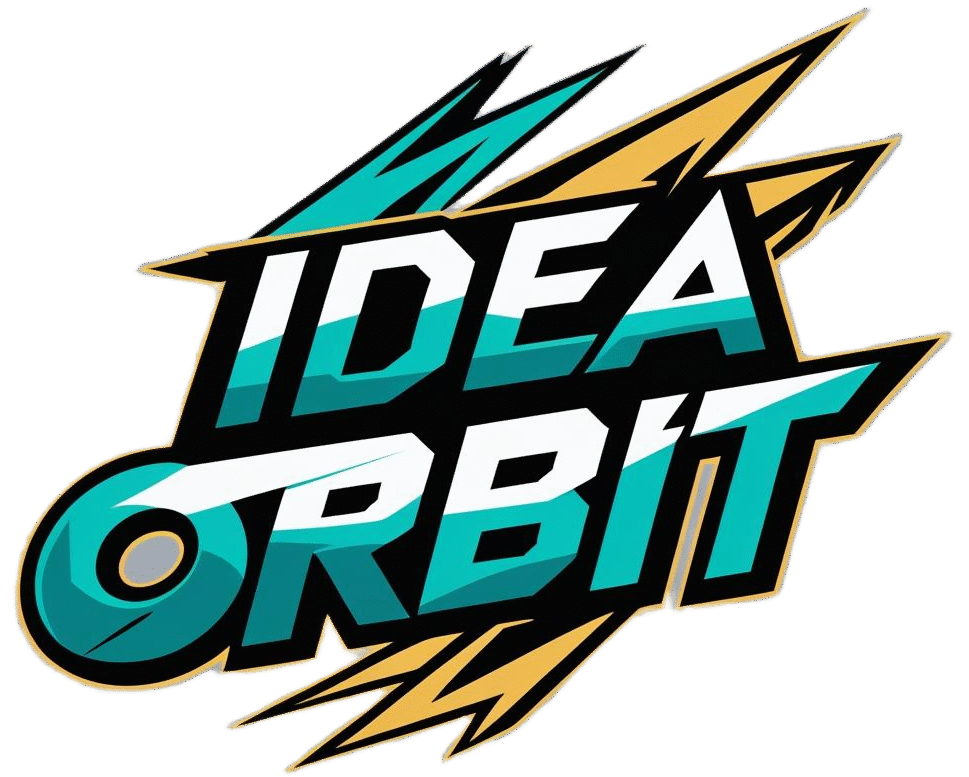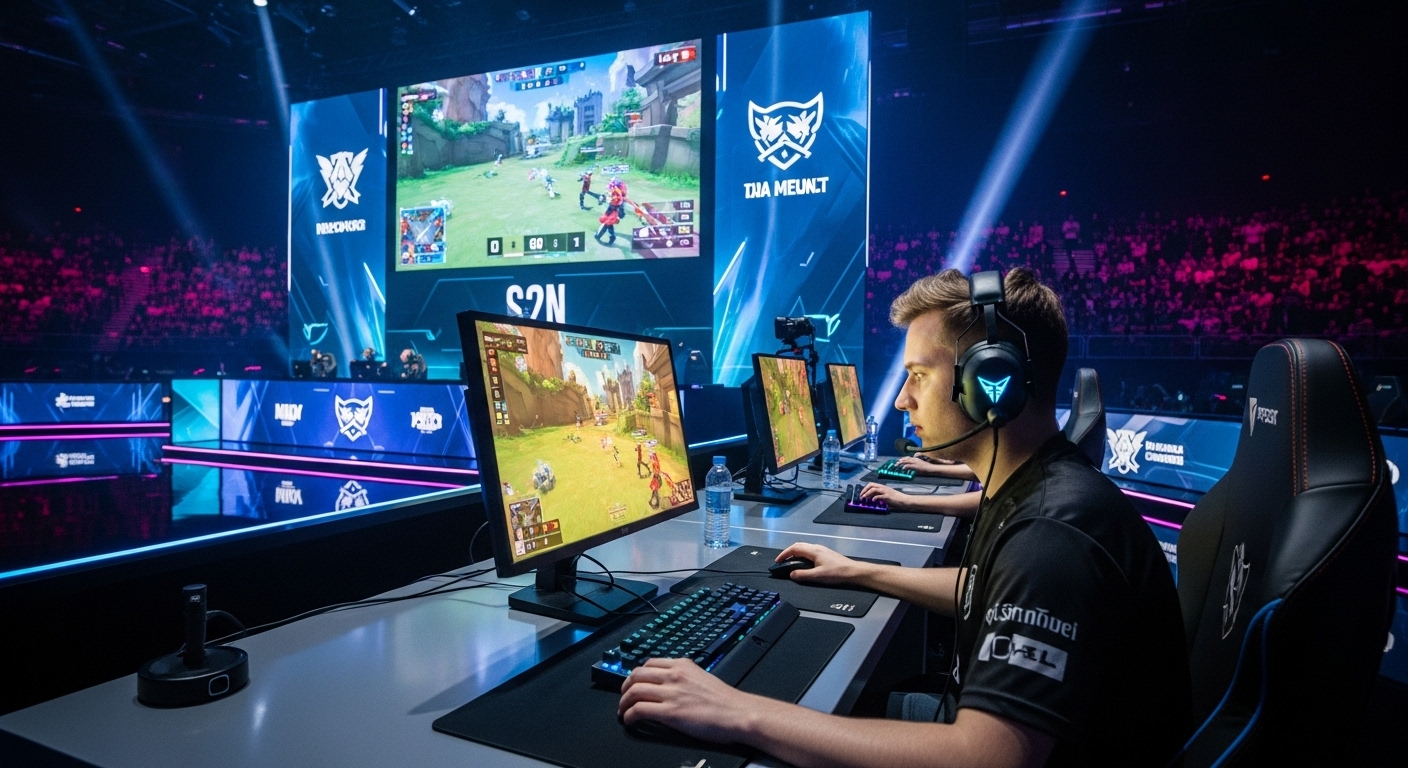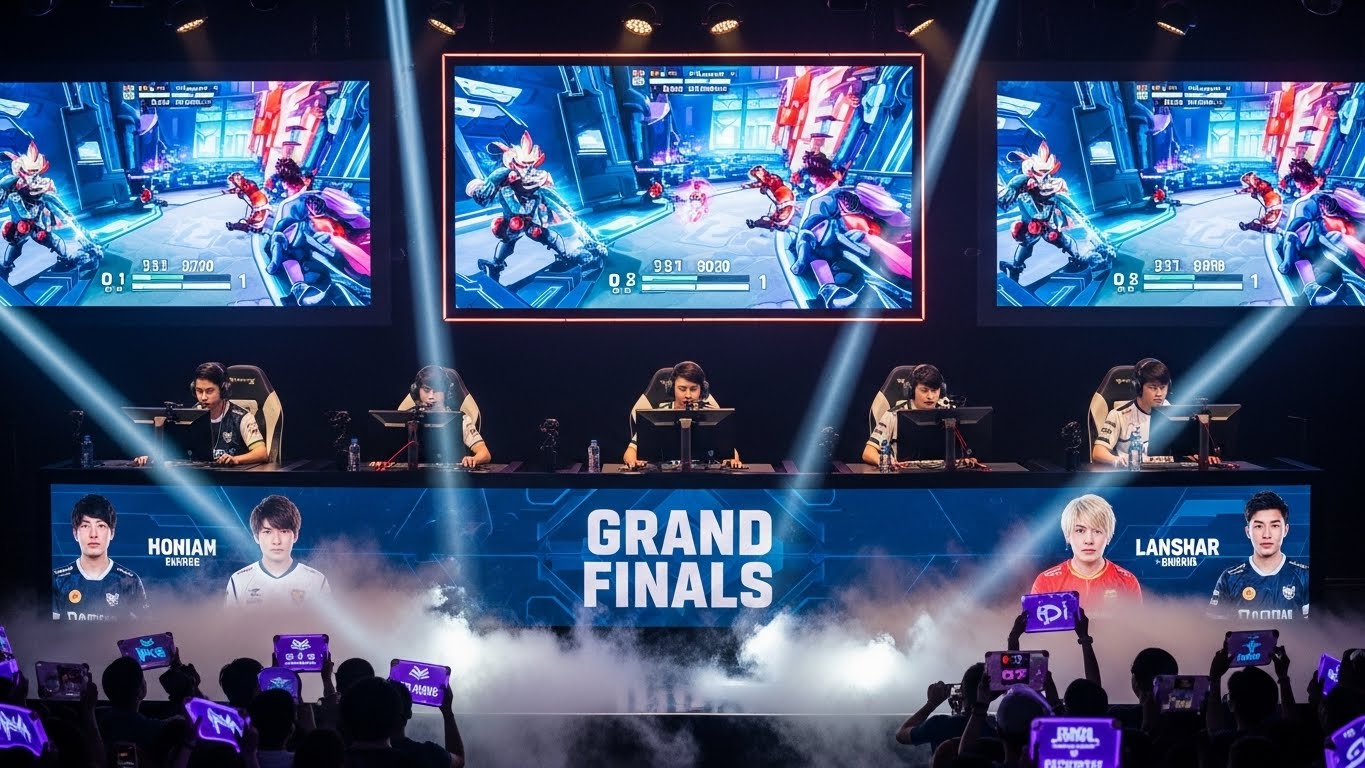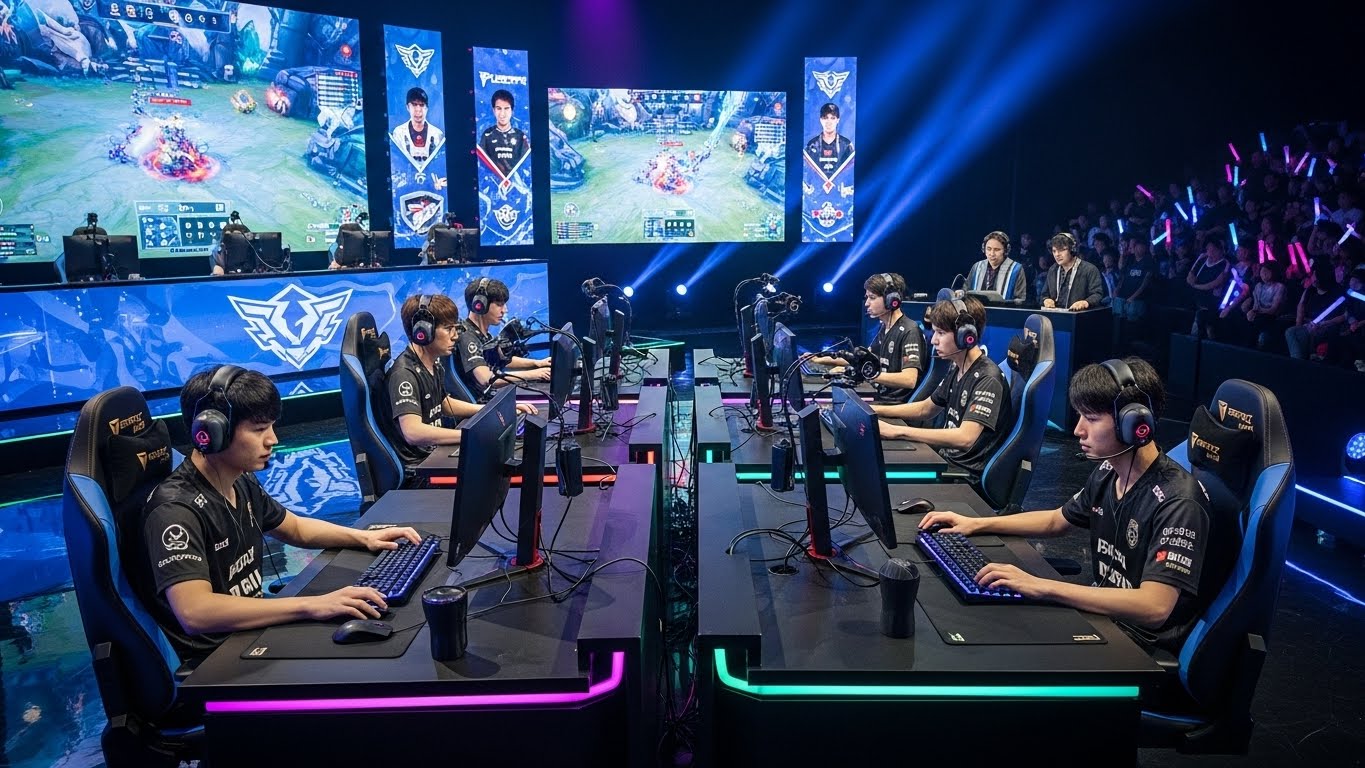Esports has evolved from a niche hobby into one of the fastest-growing sectors in global entertainment. What began as small gaming competitions has now transformed into a billion-dollar industry filled with international tournaments, professional players, massive audiences, and an entire ecosystem of sponsorships and marketing. As this digital revolution continues, brands across the globe—from technology giants to fast-food chains—are realizing that esports is not just about gaming. It’s about culture, connection, and influence. This realization has driven a wave of brand partnerships and marketing initiatives aimed at tapping into esports’ energetic and youthful audience.
In this blog, we will explore in depth how brands are entering the esports space, why they are investing, what strategies they use, and how this dynamic relationship between gaming and business is shaping the future of entertainment and marketing.
The Rise of Esports as a Global Industry
Over the past decade, esports has exploded in popularity. Competitive gaming is now broadcasted to millions of viewers around the world, with fans following their favorite teams and players just as passionately as they follow traditional sports like football or basketball. Events like The International for Dota 2, the League of Legends World Championship, and the Fortnite World Cup attract massive audiences, both live and online.
This surge in attention has caught the eyes of brands. The esports audience is young, tech-savvy, and globally connected—a demographic that traditional advertising often struggles to reach. These are digital natives who spend more time online than watching television, and they value authenticity over flashy commercials. For brands, esports offers a gateway into this audience’s world.
The global esports industry has surpassed the billion-dollar revenue mark, with projections suggesting continued growth in the coming years. Much of this revenue comes from sponsorships and advertising, which account for a significant portion of the industry’s income. In other words, brands are fueling the financial backbone of modern esports.
Why Brands Are Investing in Esports
Brands are entering the esports arena for a variety of reasons, but the primary motivation is clear: engagement. Esports offers brands direct access to one of the most valuable consumer demographics in the world—millennials and Gen Z. These generations have grown up with gaming as a central part of their culture, and they are known for being loyal to brands that support their passions.
Another reason brands are drawn to esports is its global reach. Gaming is universal, transcending borders and languages. A brand that partners with an international esports tournament instantly gains exposure to millions of viewers worldwide.
Furthermore, the digital nature of esports allows brands to experiment with innovative forms of marketing. Unlike traditional sports, where advertising might be limited to physical banners or commercials, esports offers endless creative possibilities. Brands can appear in live streams, in-game environments, player jerseys, team logos, or even sponsor digital content like highlight reels and tutorials.
Finally, esports provides a level of engagement that other media simply cannot match. Fans are deeply involved in gaming culture. They follow players on social media, participate in live chats during streams, and consume gaming content daily. This engagement gives brands the opportunity to build genuine relationships with their audience through consistent, interactive experiences.
The Early Days of Esports Sponsorship
Before esports became a billion-dollar industry, sponsorships were relatively modest. In the early 2000s, gaming tournaments were small and localized, often supported by computer hardware brands like Intel, NVIDIA, and Alienware. These companies saw esports as a natural extension of their products, appealing to gamers who needed high-performance equipment.
As esports viewership grew, non-endemic brands—those not directly related to gaming—began to take notice. Energy drink companies like Red Bull and Monster Energy were among the first major sponsors outside the gaming industry to invest heavily in esports. They recognized the synergy between gaming and energy drinks, positioning themselves as lifestyle brands for gamers.
These early investments laid the groundwork for the modern esports sponsorship landscape, demonstrating that brands from any industry could find value in gaming partnerships if approached strategically.
How Major Brands Are Entering Esports
Today, brands from nearly every sector are finding ways to enter the esports space. From automotive companies to fashion designers, the esports audience has become a target for creative collaborations and marketing campaigns.
Technology and Hardware Brands
Technology brands remain at the forefront of esports sponsorship. Companies like Intel, AMD, and Logitech continue to provide essential support through equipment, event sponsorships, and branded tournaments. For these companies, esports represents both a marketing opportunity and a testing ground for new technologies.
Food and Beverage Brands
Fast-food chains and beverage companies have made some of the most memorable entries into esports. Brands like McDonald’s, KFC, and Coca-Cola have sponsored tournaments, partnered with gaming influencers, and even created gaming-themed campaigns to connect with younger audiences. These collaborations often blend humor, culture, and gaming references, making them highly shareable and effective.
Apparel and Fashion Brands
Fashion has also entered the esports scene in a big way. Sportswear companies like Nike, Puma, and Adidas have signed sponsorship deals with major teams and players, creating exclusive jerseys and merchandise. Even high-end fashion labels have begun exploring partnerships with gaming franchises, recognizing esports as a growing cultural force.
Automotive Brands
Car manufacturers have discovered esports as a way to reach a younger demographic that might not be easily engaged through traditional advertising. Brands like BMW, Mercedes-Benz, and Honda have partnered with esports organizations and events, aligning their image with innovation and performance.
Financial and Insurance Institutions
Perhaps one of the most surprising developments has been the entry of financial institutions into esports. Banks, payment apps, and insurance companies have begun sponsoring esports events and teams, offering financial literacy campaigns tailored to gamers. This demonstrates that esports’ reach extends far beyond entertainment—it is influencing lifestyle and financial behaviors.
Esports and Influencer Marketing
Another way brands are entering esports is through influencer partnerships. Gaming influencers and streamers have massive followings, often rivaling traditional celebrities. Platforms like Twitch and YouTube Gaming have given rise to influencers who can promote products directly to engaged audiences.
Brands collaborate with these influencers to reach gamers in an organic, authentic way. For example, a gaming headset company might sponsor a popular streamer who uses their product during broadcasts. Unlike traditional ads, these collaborations feel personal and genuine, making them more effective in building trust.
This influencer-driven marketing strategy has become one of the most powerful tools in esports branding. Instead of interrupting the audience with ads, brands are becoming part of the gaming experience itself.
Creative Sponsorship Models
In addition to traditional sponsorships, brands are experimenting with new and creative ways to engage with esports fans. Some create branded in-game content, such as virtual billboards or exclusive skins. Others sponsor content series, documentaries, or community tournaments.
Esports offers brands flexibility that traditional sports can’t. Digital environments allow for instant creativity. For example, a beverage company might release a limited-edition in-game drink or organize a virtual event where players can compete for branded prizes. This type of marketing feels interactive rather than intrusive, which is why it resonates with gamers.
The Role of Esports Organizations
Esports organizations, such as Team Liquid, FaZe Clan, and G2 Esports, have become essential partners for brands entering the scene. These organizations manage teams across multiple games and have large fanbases that extend beyond the matches themselves.
For brands, working with an esports organization provides access to a built-in community and the credibility of established players. These organizations often act as cultural brands themselves, producing lifestyle content, apparel, and entertainment that reaches beyond gaming.
By partnering with such organizations, brands can seamlessly integrate into the gaming ecosystem, appearing authentic and relevant to fans.
Challenges for Brands in Esports
While the esports market offers tremendous opportunities, it also presents unique challenges. One major challenge is authenticity. Gamers can easily detect when a brand’s involvement feels forced or inauthentic. To succeed, brands must understand gaming culture and respect the community’s values.
Another challenge is the fragmented nature of esports. Unlike traditional sports, there isn’t a single governing body overseeing all competitions. Each game has its own ecosystem, publisher, and competitive structure. This fragmentation can make it difficult for brands to navigate sponsorship opportunities effectively.
Measurement and ROI (return on investment) also pose challenges. While esports viewership numbers are impressive, translating those metrics into tangible business outcomes requires careful strategy and long-term planning.
Success Stories of Brand Integration
Several brands have managed to master the art of esports integration. For example, energy drink brands have become nearly synonymous with gaming. Their products are often visible at events, in streaming backgrounds, and on player desks.
Similarly, sportswear companies have created custom esports apparel that blends athletic functionality with gaming aesthetics. These collaborations not only promote the brands but also elevate the image of esports as a legitimate sport.
Car manufacturers have also seen success by sponsoring teams and events, using esports as a platform to showcase innovation and technology. These partnerships demonstrate how diverse industries can connect with gaming culture in meaningful ways.
The Future of Brand Engagement in Esports
As technology continues to evolve, so will the opportunities for brand engagement in esports. Virtual reality, augmented reality, and artificial intelligence are expected to open new dimensions for interactive marketing.
Brands will likely invest more in creating personalized experiences for fans. This could include virtual meet-and-greets, digital merchandise, or even brand-sponsored in-game events.
The boundary between gaming and everyday life is becoming increasingly blurred. Esports is no longer confined to tournaments; it’s a cultural movement influencing music, fashion, entertainment, and social media. Brands that understand this cultural shift will continue to thrive in the esports ecosystem.
Esports and Corporate Social Responsibility
Beyond marketing, brands are also using esports as a platform for positive impact. Many companies sponsor esports events that promote inclusivity, diversity, and education. Initiatives aimed at mental health awareness, youth empowerment, and gender equality are becoming more common within esports sponsorships.
These efforts not only strengthen a brand’s image but also contribute to the growth and maturity of the esports industry. By aligning with social causes, brands demonstrate that their involvement goes beyond profit—they are supporting the future of gaming culture.
Conclusion
The entry of brands into esports marks a pivotal moment in both marketing and entertainment. What was once a subculture has become a mainstream phenomenon, drawing the attention of the world’s biggest companies.
Brands see esports as more than just a business opportunity—it’s a gateway to connect with the next generation of consumers. By engaging authentically, supporting the community, and embracing innovation, brands can build meaningful relationships that last far beyond a single sponsorship.



